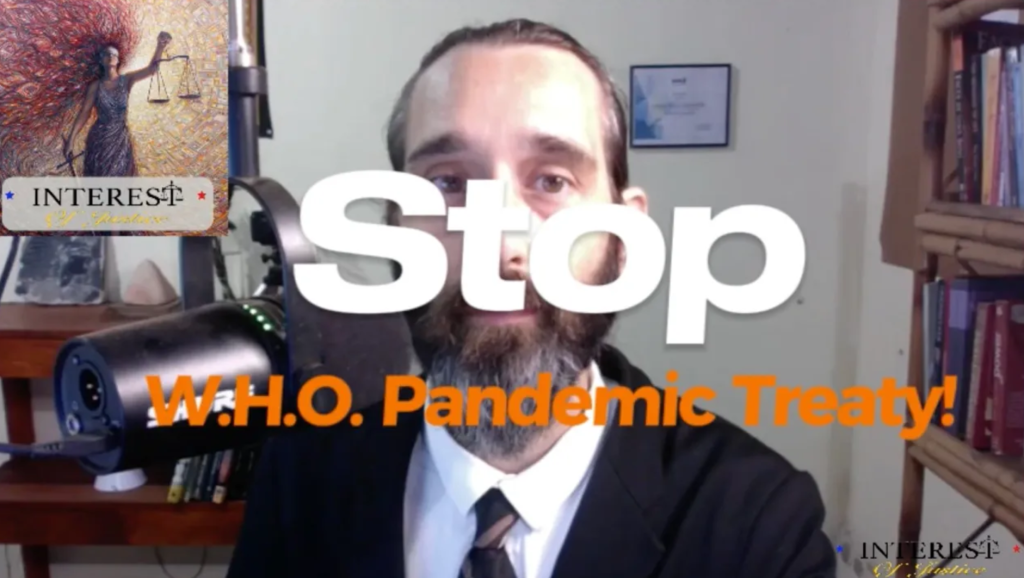On October 19, 2024, Interest of Justice calls for public engagement against the World Health Organization (WHO) Pandemic Preparedness and Response Treaty. The organization emphasizes the need for collective action to prevent what they describe as an overreach by global entities that could impose stringent health regulations within individual countries. They argue that such regulations could lead to significant control over national health policies, allowing globalists to profit from what they perceive as unnecessary and overly harsh health measures. To facilitate this movement, Interest of Justice has created a coalition inviting individuals to join their efforts to push back against the treaty, aiming to empower citizens to reclaim their national health autonomy.
The organization encourages interested individuals to visit the dedicated website, www.whowatch.org/pprtreatycoalition, where they can sign up to learn more about strategies to oppose what they categorize as “WHO pandemic treaty madness.” This initiative hopes to generate widespread awareness and grassroots mobilization against the potential implications of the treaty, which proponents believe threatens national sovereignty. As part of the coalition-building effort, Interest of Justice aims to create a robust platform for discussion, education, and action among concerned citizens regarding health governance at both local and global levels.
Furthermore, supporters of the movement are encouraged to contribute financially to the cause through donations at www.suethewho.org/donate. This financial support is crucial for sustaining the organization’s activities, including outreach, educational programs, and advocacy efforts that resonate with the public’s desire for more transparent and accountable health policies. The organization positions itself as a nonprofit, dedicated to advocating for patient rights and dismantling what they see as exploitative practices related to health regulation under the guise of pandemic preparedness.
In addition to advocating against the WHO treaty, Interest of Justice also offers various resources for individuals seeking to understand and navigate the concerns surrounding job automation in the modern economy. By providing free reports and newsletters, they aim to equip subscribers with knowledge about the potential impacts of automation on employment and how to mitigate these effects. This dual focus on not only health governance but also economic resilience illustrates the organization’s commitment to addressing multiple facets of social justice and individual rights in the face of growing global challenges.
The communication from Interest of Justice is further enhanced by media production efforts aimed at raising awareness of their mission. As part of their outreach, they utilize various forms of media to effectively engage audiences, ensuring that the message of opposition to the WHO treaty reaches a broad demographic. This strategy highlights the importance of media in activism, allowing organizations like Interest of Justice to synthesize complex issues into accessible formats that resonate with the public.
In conclusion, Interest of Justice’s mobilization against the WHO Pandemic Preparedness and Response Treaty represents a broader concern about the implications of global governance on national health systems and individual freedoms. By calling for coalition-building and advocating for transparency in health policies, they seek to empower citizens in the fight against overreach. As they leverage both digital platforms and media for awareness, they highlight the intersection between health autonomy and economic justice, ultimately encouraging an informed and active citizenry in shaping the future of public health governance.

